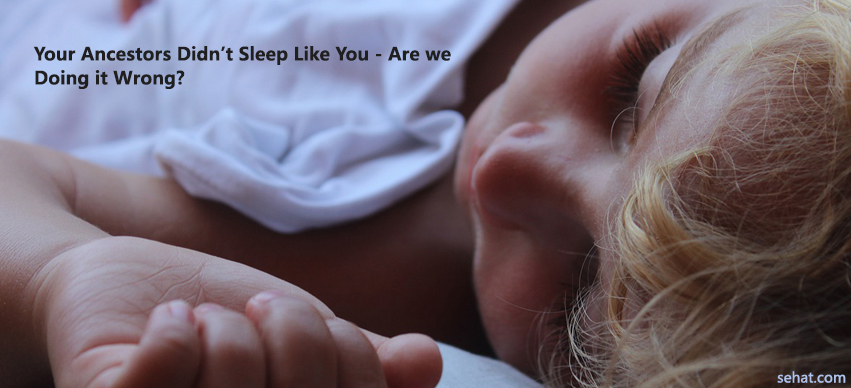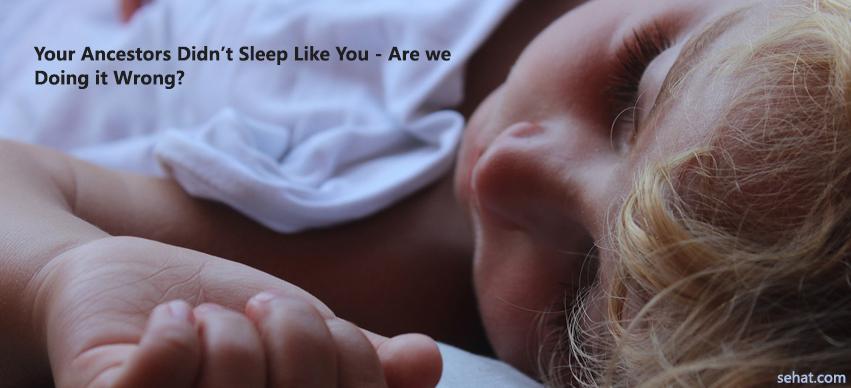Microplastics in Humans: Understanding the Risks and How to ..
8 Min Read


What if you were told, people way before didn't always sleep the way you do today and they didn't have sleeping problems? That 8 hours of sleep is a hoax? Your great grandparents may have maintained the same sleeping patterns as you, but it was way before them that the way people slept was totally different. Generations before ours would sleep twice at night. Ridiculous, right? But as hard as it is to believe that's actually the case and History Professor Roger Ekirch, from Virginia Tech, has uncovered some striking truths about sleeping patterns from the past.
After 15 years of research, in 2001 he produced astounding historical evidence, through his published paper, that people really did sleep twice at night. In 2005 Professor Roger Ekirch, published "At Day's Close: Night in Time's Past", his book on disjointed sleep patterns. His sources came from a number of sources like medical publications, literature, and diaries. It also includes information and details from Homer's Odyssey and studies on Nigeria's modern tribes. Perhaps, reading this book mankind will finally discover the best sleeping problem solution that works for a vast majority!
As per the Professor's research, people back in the day didn't sleep for 8 hours straight at night. In fact, during the second half of the day, they would sleep for three to four hours, awake and stay up for around two to three hours or so then go off to sleep again till sunrise.
In Prof. Ekirch's book, you'll notice that there are tons of examples and references that point to two-piece sleep being accepted as a standard way to sleep. Here's one example, an English doctor once wrote that the best time to study and contemplate was during the period of wakefulness between first sleep and second sleep. References like this made to the two periods of sleep prove it was common knowledge that people slept this way.
At the time when people actually slept this way and considered it normal, they would spend their two to three hours awake either praying, reading, lying awake in bed, sitting in their bedrooms, talking to each other, smoking, leaving the house to visit neighbors, or even having sex. These activities were often written down and now serve as references that prove the practice of two-part sleep.
In the 1990's Psychiatrist named Thomas Wehr did a little bit of research of his own. For a month he experimented with a group of 14 people. They were put in complete darkness for 14 hours straight every day during that month. At the start of the experiment, they all slept for a long stretch of time, as if to catch up on sleep that they had missed. Once they reached the fourth week of the experiment everyone assumed a different sleeping pattern, similar to the two the one described by Prof. Ekirch.
As per Wehr's experiment, we see that segmented sleep comes naturally, like a default setting of our nervous system. Some associated the nighttime with people having bad reputations like criminals, drunks, and harlots. Even those who could afford candlelight refused to use it to stay up at night. They believed nothing good ever came out of being awake late at night.
In 1967, Europe saw the start of streetlights allowing late-night activity and prompted them to stay up. Then came the industrial revolution, which increased the desire for efficiency and the need to know the time for the purpose of efficiency. Going to school became a necessity, so parents started having their children going to bed early. This ultimately pushed them further away from the two sleep patterns.
This type of sleep may have you feeling completely rested, but it may be a result of you giving yourself more time to sleep, resulting in the well-rested relaxed feeling, which is the same result you will get if you slept for eight hours straight. So there is no real proof showing that two periods of sleep are good for the body or is a better way of sleeping at night.
In Prof. Ekirch's opinion, people suffer from a condition called "sleep maintenance insomnia" (trouble going back to sleep after waking up in the middle of the night) because they have shifted away from separated sleep. This condition was popular in the 19th century when the two sleep pattern was dying down. The professor believes that the body craves the separated sleep pattern since it is a natural phenomenon and this is what is leading to sleeping problems in so many people.
Two sleep periods are usually possible during the winter months and not really during summer. Plus, complete darkness is a must during two periods of sleep. Natural darkness is available in abundance during winter nights and not summer. Perhaps this form of sleeping was just a coping mechanism the body used to get through long cold boring nights. But as long as you get your eight hours every night you should be as fresh as a daisy in the morning.
You need to consider a few factors to ensure you enjoy sound sleep all night every night. Here are some tips on how to sleep well if you have sleeping problems or are looking for a sleeping problem solution.
You need to make sure your room is comfortable. It should be cool, cozy, and comfortable. Make sure the place is clutter-free and has just the right temperature so that you can sink into your sheets and pull over the duvet and sleep like a baby.
Many prefer to sleep in absolute quiet and calm, while a few others feel they can sleep better with the fan running, and the sound of traffic in the background. There is no hard and fast rule, on what works best, as this differs from person to person! Simply, find what works best for you!
Our sleep can be affected by light. Dark rooms are mostly preferred compared to rooms with a bright light shining through. So draw the curtains when sleeping to prevent the early morning light from disturbing your sleep.
Going to bed directly after a meal can affect your sleep. The same goes for going to bed on an empty stomach. And, if you drink too much water before going to bed, you will feel the need to wake up and go to the bathroom.
Use these tips on how to sleep well to overcome your sleep problems. Remember, there is always a sleeping problem solution; you just have to make an effort to find one that best suits your requirements and lifestyle needs.